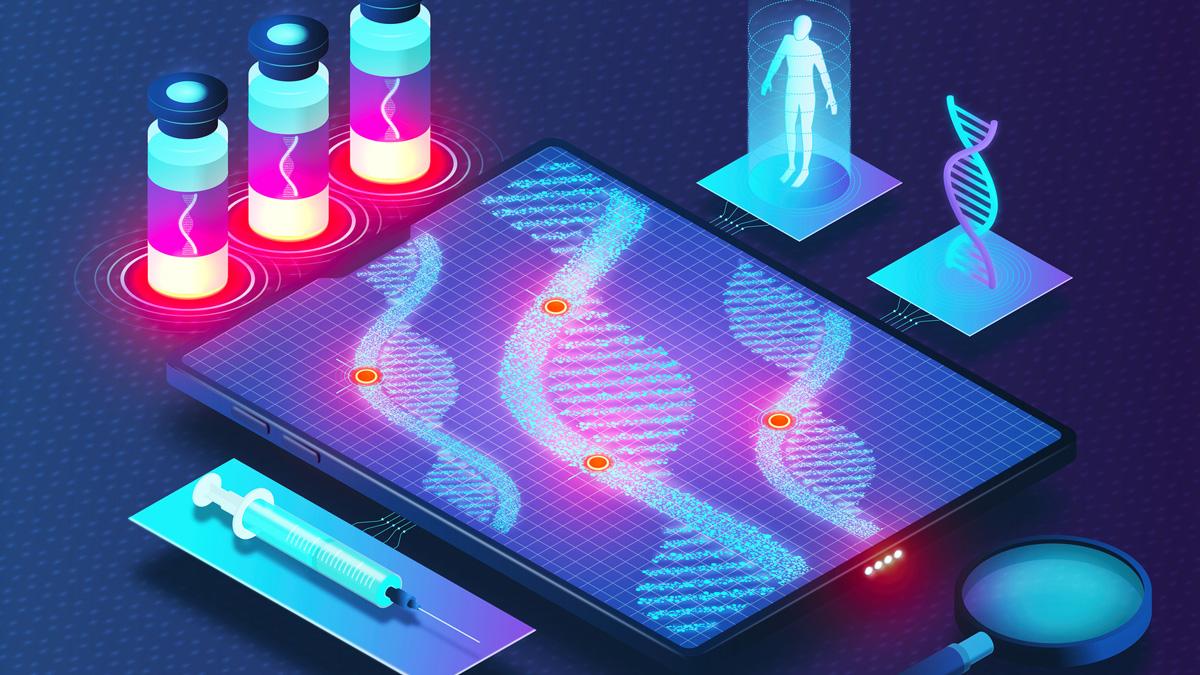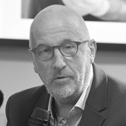A prevention healthcare revolution: The future of pharma

While rapid positive advances in medical science roll out, global healthcare systems still face an important opportunity for transformation: a prevention healthcare revolution.
A recent study of primary prevention activities in hospitals in 20 European high-income countries found that, in “the vast majority of countries (15), there are no systematic national policies on primary prevention in hospitals.” And, largely, it is due to the lack of incentives.
Healthcare services are critical for prevention, but they do not have the capacity to drive a prevention healthcare revolution alone. Wide scale prevention requires collaborative stakeholder planning and action across multiple sectors within the health system; this includes government, industry, society, and individuals themselves.
To address how to facilitate this, at Anthropy 2025: Rebooting Britain the Adelphi Group-sponsored panel, ‘The Prevention Revolution in Your Healthcare’, brought together expert panellists: Professor Dr Ben Bridgewater, CEO of Health Innovation Manchester; Steve Clark, Patient Engagement Consultant, and patient advocate at non-profit Strive for Five; Dr David Gillen, Chief Medical Officer of Norgine; Dr Carly Santer, Strategic Initiatives Project Leader, Co-Lead Pharma R&D Sustainability Team, at Bayer; and Nicole Yost, Director of Communications & Corporate Affairs at the British Heart Foundation (BHF). The panel was moderated by Stuart Cooper, CEO of Adelphi Group.
As Cooper noted, prevention is very much about life, about ensuring a healthy society. However, healthcare systems worldwide are under increasing pressure, due not just to financial challenges, but also to longer lifespans presenting a greater preponderance of illness. And prevention is significant part of the solution.
Patient advocacy and an individual’s agency for their own health
Steve Clark was diagnosed with stage 4 colorectal cancer 12 years ago, and Strive For Five (SFF) aims to give hope to others with the disease. What is striven for is improved care. After all, a person is only a patient when in a hospital or healthcare setting; otherwise, a person living with a disease is still very much that – a human being trying to live their life.
Within the remit of prevention, from the perspective of the cancer community, Clark provided a definition. The classic understanding of primary prevention, he said, is of lifestyle factors, vaccinations, health checks, while secondary prevention is about early diagnosis and screening, and tertiary prevention is management of disease, preventing recurrence, and aiming for quality of life in long-term disease lived experience. For many diseases, including cancer, the drive is to stop it coming back – but tertiary prevention needs to adapt to increasing rates of long-term survival. That, Clark suggested, will require a collaborative care model.
Primary prevention is, in this way, the first line of defence and something around 40% of cancers may indeed be avoided through lifestyle changes. However, read the other way, around 60% cannot. One issue with focusing on lifestyle factors is, when it comes to diet in particular, people diagnosed with cancer can self-blame, said Clark. Uptake of cancer screening is between 60% and 70%, as it is neither user-friendly nor pleasant. But younger patients are increasingly presenting with symptoms, at the same time as being told they’re too young to present with such. Therefore, striving to improve prevention in order to alleviate burden on the healthcare system requires substantially different training of the healthcare workforce.
With his professional background in pharma, Clark sees that the pharmaceutical industry can make a significant contribution to health prevention. Many innovations in prevention have been due to pharmaceutical research. So, pharmaceutical companies have an important contribution to make. And it is more than making financial contributions, more than sponsorship: industry is skilled with communication and knows the science – therefore, they are ideal partners who can support with the delivery of a prevention agenda, insisted Clark. Nonetheless, pharma’s historically poor public image means that the strong partnership role that industry has to play, along with other groups, needs to be carefully communicated.
Clark is a proponent of deeply understanding the real world experience of patients as vital in ensuring co-development and co-creation of prevention strategies. There is real progress in this area, but that has to be “in each disease, in each advancement of that disease, each population, each type of person socioeconomically.” It is, in other words, about the breadth and depth of the spectrum of humanity.
Nicole Yost agreed with Clark on this point. There is, she said, the idea that a heart disease patient is typically middle-aged and overweight, usually male. But cardiovascular disease affects many people. Yost confirmed that the BHF has launched a new strategy this year, addressing disease prevention and support for people across different stages, ethnicity and severities of disease. It will help more people to live healthier lives for longer by stopping heart disease before it starts, revolutionising prevention; saving more people from heart disease and supporting more people living with heart disease. Prevention is not merely ‘wellness’: it is an active engagement with one’s own healthcare and the health system; with self-responsibility.
Health on a system level, with pharma, together providing intervention
When it comes to health systems, data and digital advancements might very well hold the key to prevention as intervention.
Professor Dr Ben Bridgewater described himself as being, but also not being, NHS. Indeed, he explained that he typically walks around the NHS feeling radical, but as he walked around Anthropy not radical enough. Liking to imagine himself as a ‘tempered radical’ from social movement theory, he said that, “the idea is not to be scared to think big, differently, to not be of the tribe. And that’s a problem in medicine and particularly the NHS. So, let’s think a bit more about ambition and tempered radicalness.”
In terms of translating this into a preventative impact, Bridgewater’s second point was that digital platforms disrupt existing value chains. He and his team are focused on a health and care digital platform in Greater Manchester, developed with circa 350,000 consultations per month. Originally, he was a cardiac surgeon, though his “best friends these days are health economists”. Bridgewater added that, “the most compelling and impactful contributors to innovation come from industry,” and so engaging actively and collaboratively with pharmaceutical companies is critical to achieving better outcomes.
Yost added that the BHF itself spends around £100 million a year on cardiovascular research, yet, cardiovascular disease (CVD) is still one of the biggest killers in the UK. In terms of partnerships, she concurred that non-traditional research partners, including experts in AI, data science, and engineers, also need to be considered. Alongside the health and data systems, though, pharma has its part to play, also.
Indeed, when it comes to pharmaceutical research and development, industry’s role is to develop safe and effective medicines, many of which have a preventative action – and it’s not just about vaccination programmes. It depends on the type of therapy, and the necessary investment.
Dr David Gillen started as a medical doctor. He went into industry as he wanted to do R&D and “bring better medicines to patients.” He recalled his experience in cystic fibrosis, where innovative science was able to really transform patients’ lives and, as Clark says, allow them to be people again.
In Gillen’s view, much of what pharmaceutical companies do has a preventative outcome. In this way, prevention is everywhere in what industry does – vaccines, statins, hypertensive drugs. So, while companies can support health prevention initiatives, their real value is in delivering innovation in drug discovery and development, confirmed with excellence in evidence and data science. He stands by science and innovation, to “make patients people, with whatever condition they have.”
Medical intervention has a greater impact than lifestyle changes, than ‘wellness’ – and this is evidenced in the positive outcomes from the cardio-renal-metabolic field, such as the effectiveness of statins for the population who is affected by these disorders, with the onus being on identification of those at risk. Rather than public health, the focus is on the benefit to the individual, within their personal ‘healthcare ecosystem’.
Yet, both prevention and, indeed, intervention are connected to the economic productivity of a country. In this way, prevention is a multi-stage, collaborative endeavour: from the individual, to the entire healthcare system, including industry.
Collective responsibility for human sustainability: An Anthropic ambition
Such a multi-stage collaboration includes research charities and more sustainability-focused strategies.
The BHF is a major investor in medical research. It also sees the profound impact of the wider social determinants of cardiovascular health and BHF has been highly active in lobbying for policy change in these areas, including pollution and smoking. Prevention requires widespread collaboration and, in this way, charities and advocacy groups are significant stakeholders and catalysts in making prevention a reality, Yost noted.
The end goal of all this? A more sustainable society and, by extension, a more sustainable world.
For Carly Santer, a sustainable future is achieved through a shared vision. This results from clarity in communication and meaningful human connection when it comes to stakeholder engagement. She attests to disliking the term ‘business case’ – but that is what prevention needs; it is currently very hard for privately listed companies to make the business case for long term investment, so what we need to increase prevention are short-term wins linked to long-term goals.
For her, the definition of sustainability is the well-being of current and future generations. Our economic system has an ‘immune system’, it resists change, but for a healthy collective future disruption is needed; humans create our current economic system, we have the ability to craft, with a clear vision of what the future looks like under the healthiest lens possible.
Furthermore, Santer’s comments provided impetus for development of a more circular economy from the ground up. Prevention of illness and disease in the individual, all the way to prevention of burdens not just upon the healthcare system, but economically on society, and beyond, on country level and global health systems. And it is here, she said, that AI and technology have a role.
Long-term investment in prevention strategies for a sustainable tomorrow
The long-term benefits of prevention are clear, but the challenge lies in securing investment and collaboration to make it a reality. Meaningful, actionable prevention requires engagement across the entire healthcare ecosystem – from individuals and patient advocates to all stakeholders within the healthcare system, including the pharmaceutical industry and charities. An approach through sustainability lens is then holistic, evidence-driven, and multi-sectoral.
Individuals must feel empowered to take proactive steps and claim ownership of their health. This can be achieved through the methods described and discussed by the panellists: promotion of awareness, early and compassionate intervention, and personal responsibility for evidence-based lifestyle choices that support prevention.
Furthermore, partnerships between the stakeholders in the health system, the pharmaceutical industry, patient advocacy groups, and charities must be fostered in order to drive forward unified, sustainable, prevention-focused initiatives and programmes. Investment must be secured; long-term investment in prevention strategies, including medical research, technology-driven solutions, and policy changes that prioritise proactive healthcare. Indeed, recent advances in AI, digital health, and connected healthcare systems will improve early detection, risk assessment, and preventative care interventions.
The opportunity and agency for change exists, the ability to prevent is possible – to accelerate and amplify prevention at the scale needed for current and future generations to thrive, we must take collaboration action without delay.
- Biopharmaceutical companies have significant skills and experience that contribute to health prevention.
- Prevention goals can be achieved by close partnership between all stakeholders, with emphasis on people and patients affected.
- Large research-based charities have significant impact in public prevention efforts and are major stakeholders.
- Each biopharmaceutical company must prospectively decide its appropriate level of engagement in healthcare prevention.
- Digital platforms are transforming accurate targeting of prevention.
- In the broader context of sustainability, including social and environmental determinants of health, prevention is critical for a healthy future.
- Real commitment to long-term funding is needed, far beyond current annual cycles, if the prevention revolution is to be realised.
About the interviewees
 David Gillen qualified in Medicine, Physiology and Clinical Pharmacology from St Mary’s Hospital (Imperial College of Science, Technology and Medicine) in 1992.
David Gillen qualified in Medicine, Physiology and Clinical Pharmacology from St Mary’s Hospital (Imperial College of Science, Technology and Medicine) in 1992.
He retained his interest in Pharmaceutical Medicine during his postgraduate training in Cardiology and General Medicine and joined Pfizer Global Research and Development Sandwich in 1999, his first of many roles at Pfizer.
After several years with Pfizer, Gillen went on to work at Gilead Sciences, was Head of Europe and Asia for Safety and Risk Management at Celgene, and then Head of Medical Affairs for the International Division of Vertex Inc, before taking up his current role at Norgine in 2022.
Gillen is an honorary visiting senior lecturer at Queens University Belfast and Kings College London. Ben Bridgewater is Chief Executive of Health Innovation Manchester, an academic health science system that brings together health, academia, and industry. The mission is to accelerate innovation into practice at pace and scale, so to transform the lives of Greater Manchester’s 2.8 million citizens.
Ben Bridgewater is Chief Executive of Health Innovation Manchester, an academic health science system that brings together health, academia, and industry. The mission is to accelerate innovation into practice at pace and scale, so to transform the lives of Greater Manchester’s 2.8 million citizens.
He is a leading expert on health informatics, national clinical audit, clinical governance, healthcare transparency, patient experience measurement, and digital transformation in healthcare, publishing numerous high profile academic outputs and delivering innovative IT tools for disseminating clinical outcomes to professionals and the public.
Prior to joining Health Innovation Manchester, Bridgewater worked for global technology company DXC Technology as the Director of the Healthcare and Lifesciences Global Build Advisory Team. Until January 2016, he was a cardiac surgeon at the University Hospital of South Manchester for nearly 18 years.
Bridgewater also provided clinical leadership for the UK national cardiac audit programme, as well as leading analyses that provides UK hospital and cardiac surgery mortality rates to the public. The programme is world-leading and associated with a 50% reduction in risk-adjusted mortality over 10 years.
 Steve Clark was diagnosed with stage 4 colorectal cancer in 2013 and has since become an active patient advocate. He is a regular speaker for audiences of patients, healthcare professionals, researchers, and industry representatives as well as volunteering with several charities including being a Campaigns Ambassador for Cancer Research UK. Clark is a patient representative to several studies and study groups and has been co-author on several papers focussed on improving patient care.
Steve Clark was diagnosed with stage 4 colorectal cancer in 2013 and has since become an active patient advocate. He is a regular speaker for audiences of patients, healthcare professionals, researchers, and industry representatives as well as volunteering with several charities including being a Campaigns Ambassador for Cancer Research UK. Clark is a patient representative to several studies and study groups and has been co-author on several papers focussed on improving patient care.
In 2017 he set up www.StriveForFive.org, a not-for-profit organisation with the mission to give hope to fellow patients with stage 4 cancer and to advocate for improved care for those with advanced cancer.
He is a Patient Engagement Consultant for the pharmaceutical industry with Redwood Brand Curators and has worked in UK and global pharma for over 35 years in business management and global marketing.
Clark is a former Chairman of the Pharmaceutical Marketing Society and was awarded Healthcare Communications Advocate by Communiqué. Carley Santer, PhD, FRSA, is Strategic Initiatives Project Leader Co-Lead Pharma R&D Sustainability Team
Carley Santer, PhD, FRSA, is Strategic Initiatives Project Leader Co-Lead Pharma R&D Sustainability Team
Clinical Supply Chain Management at Bayer.
Santer leads a team optimising global clinical trial protocol design for sustainability at Bayer, with a focus on reducing carbon emissions. With a degree in Applied Genetics and a PhD in Immunology and Epigenetics, Santer has an interest in how healthcare has evolved in response to our environment and has worked in clinical research for over 15 years. She is committed to reducing the negative impact that healthcare has on the environment and increasing healthcare access equity, to ensure that current and future generations have the opportunity to thrive. Santer holds a number of sustainability advisory roles across a range of sectors. She is an alumni of the Cambridge Institute for Sustainability Leadership (CISL) and a Fellow of the Royal Society of Arts (RSA).
 Nicole Yost is Director of Communications and Corporate Affairs at the British Heart Foundation, the UK’s largest independent funder of cardiovascular research. With more than 20 years’ experience working in health communications Nicole’s previous roles include CEO of integrated healthcare consultancy Havas Just; MD at Porter Novelli; and senior positions with communications agencies including Burson, Instinctif and Ogilvy. Her passion is communicating complex science in support of patient outcomes. Nicole is also an Executive Coach and holds an MBA with a focus in change management.
Nicole Yost is Director of Communications and Corporate Affairs at the British Heart Foundation, the UK’s largest independent funder of cardiovascular research. With more than 20 years’ experience working in health communications Nicole’s previous roles include CEO of integrated healthcare consultancy Havas Just; MD at Porter Novelli; and senior positions with communications agencies including Burson, Instinctif and Ogilvy. Her passion is communicating complex science in support of patient outcomes. Nicole is also an Executive Coach and holds an MBA with a focus in change management.
About Adelphi Group

The Adelphi Group provides a wide range of strategic support services and consulting for global pharmaceutical clients. Adelphi is dedicated to the healthcare sector, providing services across strategic marketing, marketing and business intelligence, real-world observational research and disease-specific programmes, health and economic outcomes, market access, pricing and reimbursement, value insight, multi-channel health communications, scientific services, medical education, and strategic product development consultancy. Headquarters are located in Manchester, UK with a global network of offices across Europe and the US. The Adelphi Group employs over 1,000 people worldwide.

